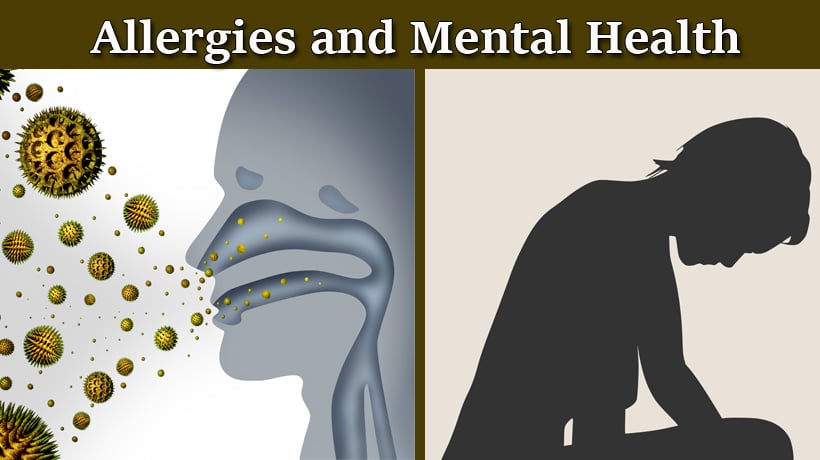It’s a cruel curse for people who suffer from allergies. As the weather changes and the sun shines from behind the curtains, people open their windows and spend more time outdoors. Unfortunately, for people who have seasonal allergies, allergens like pollen or insect bites can make that allure of sunshine and warm weather seem less enticing.
Allergies have a number of concrete physical symptoms, such as watery eyes, sneezing, rashes, and hives. While these symptoms may be frustrating on their own, there may be some harmful effects of allergies on a person’s mental health. New research shows there is a link between allergies, anxiety and depression.
Anxiety and depression
A study published this month in the journal International Archives of Allergy and Immunology recruited 1,782 men and women in Germany, aged 39 to 88 years old. Researchers surveyed the participants’ mental health conditions as well as any reported allergies, whether they were seasonal or perennial (meaning they’re present year-round).
The research team found a positive correlation between reported cases of anxiety and seasonal allergies. Researchers also found a link between cases of depression and cases of perennial allergies. However, they didn’t determine a positive link between depression and seasonal allergies.
This study mainly looked at adults with an average age of 61 years old, but allergies’ relationship with mental health may affect younger people, as well. A review published in a 2018 issue of the Annals of Allergy, Asthma & Immunology says adolescents that have allergic rhinitis, or hay fever, have higher rates of anxiety and depression.
Researchers don’t state exactly what the link between anxiety/depression and allergies entails, but the website CalmClinic, whose content is written and reviewed by psychologists and health professionals, says scientists have several theories. An unlikely theory may be that allergic reactions cause changes to the brain and body, which internally cause anxiety. Several researchers suggest living with allergies causes stress and discomfort, which can develop anxiety or make it worse.
Coping with runny noses and mental health
Determining the best treatment for mental health depends on the individual. Exercise, therapy, and sometimes antidepressants may be effective, but consulting with your doctor can help find what works best for each person.
If allergies do have an effect on mental health, there are several lifestyle changes that can limit exposure to certain outdoor allergens. The medical resource site Healthline recommends washing bedding frequently, vacuuming the house at least once a week, closing the doors and windows, and avoiding cigarette smoke.
Sources:
https://www.aafa.org/allergy-symptoms/
https://www.karger.com/Article/Abstract/499042
https://www.medicalnewstoday.com/articles/325322.php
https://www.sciencedirect.com/science/article/pii/S1081120618302503
https://www.calmclinic.com/anxiety/causes/allergies
https://www.healthline.com/health/allergies-and-depression#does-treatment-help



